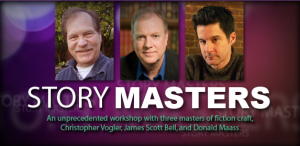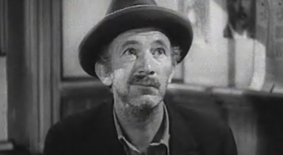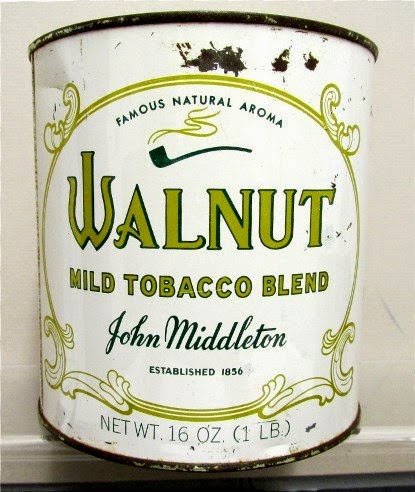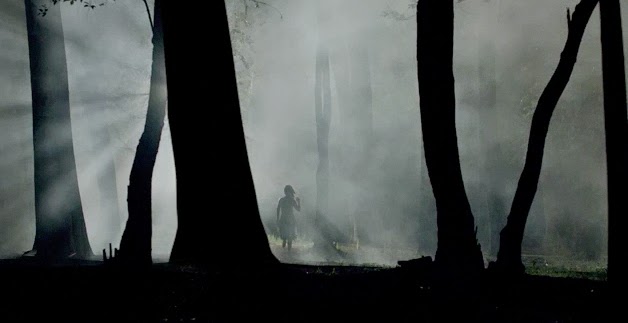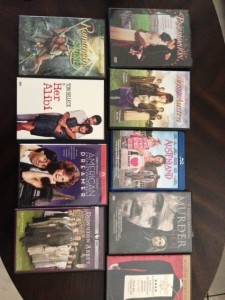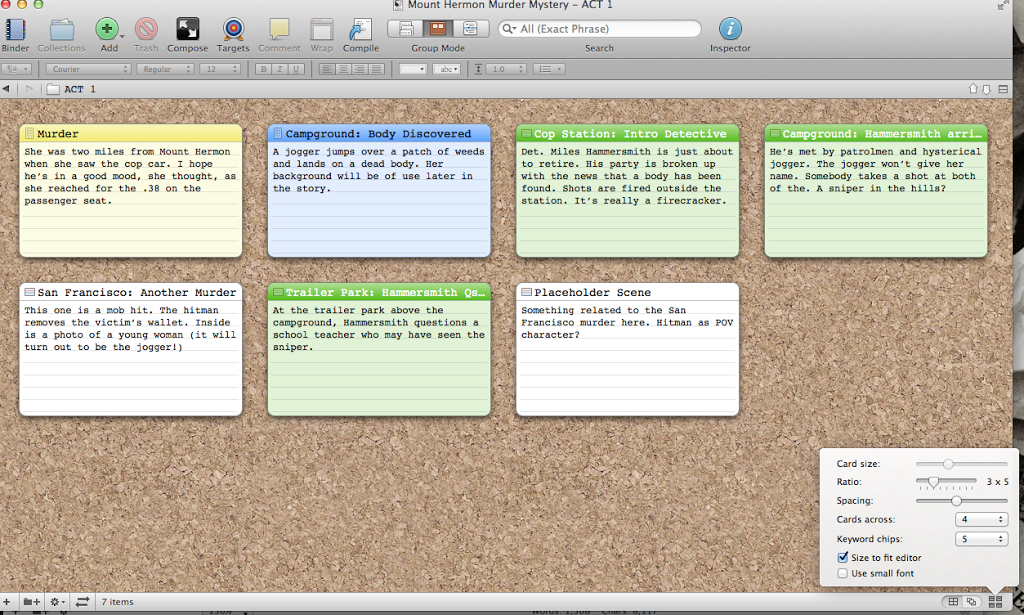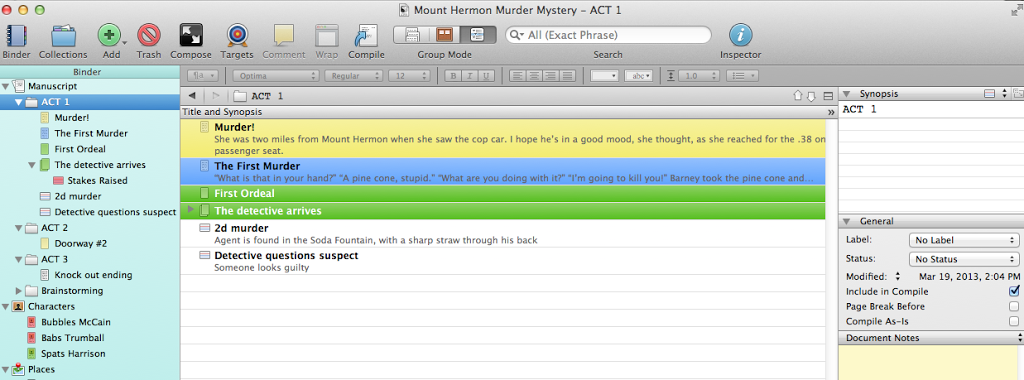 It’s Winter break here at the Kill Zone. During our 2-week hiatus, we’ll be spending time with our families and friends, and celebrating all the traditions that make this time of year so wonderful. We sincerely thank you for visiting our blog and commenting on our rants and raves. We wish you a truly blessed Holiday Season and a prosperous 2015. From Clare, Jodie, Kathryn, Kris, Joe M., Nancy, Jordan, Elaine, Joe H., Mark, and James to all our friends and visitors, Seasons Greeting from the Kill Zone. See you back here on Monday, January 5. Until then, check out our TKZ Resource Library partway down the sidebar, for listings of posts on The Kill Zone, categorized by topics.
It’s Winter break here at the Kill Zone. During our 2-week hiatus, we’ll be spending time with our families and friends, and celebrating all the traditions that make this time of year so wonderful. We sincerely thank you for visiting our blog and commenting on our rants and raves. We wish you a truly blessed Holiday Season and a prosperous 2015. From Clare, Jodie, Kathryn, Kris, Joe M., Nancy, Jordan, Elaine, Joe H., Mark, and James to all our friends and visitors, Seasons Greeting from the Kill Zone. See you back here on Monday, January 5. Until then, check out our TKZ Resource Library partway down the sidebar, for listings of posts on The Kill Zone, categorized by topics.
Monthly Archives: December 2014
Make Next Year the Best of Your Writing Life
James Scott Bell
@jamesscottbell
A Re-gifting Story
Reader Friday: Your Holiday Plans?
Key Tips for Creating a Genderless Character for Villain Options
In my critique of Cruel Sacrifices, an anonymous submission, I brought up the topic of creating scenes with a genderless character and TKZ follower Paul Duffau asked for a post on the subject. You asked, Paul. Here it is.
The technique of writing a genderless character can be effective to allow an author more options for suspects so the reader can’t easily determine the gender of a villain. One of my favorite ways to create a mystery/suspense “whodunnit” is to build a case against a slew of suspects. By the end of the book, I can flip a coin and make the final decision on who is guilty. By making a killer neutral and without gender, that expands my choices. More fun for me.
I’ve seen many books written with scenes where a villain is described as “the man” or “the killer.” As an author, that pulls me from the story, because I see the craft behind the use of the generic term. It’s obvious the author is trying to build suspense by letting the reader see a glimpse of the diabolical bad guy without fully disclosing who it is. I’m sure I’ve done this too, but in my last two thriller novels (Blood Score and The Last Victim), I challenged myself by creating a genderless character to broaden my suspect list and make it harder for readers to figure out who the guilty are.
Scenes with my genderless character were difficult to write. It’s easy to slip and add a pronoun of he or she, so edits must be thorough. And it’s hard to come up with different ways to describe this person. It’s also a challenge where to place these scenes throughout a book to add tension and mystery, but try it. It adds complexity to your writing and can make for a better “whodunnit.”
1.) Omniscient POV – In select spots during the scene, I write in omniscient Point of View (POV). I try not to carry this on for too long. I want the reader to clearly know this is my bad guy and I add a generic descriptor later to ground the reader into the head of my character, but the shock value of seeing the bodies through the eyes of the killer (the artistic elements to the brutal crime) seemed to create a more macabre effect and give insight into my serial killer.
Excerpt: The Last Victim (Jordan Dane)
Moonlight cast its slate glow onto a lifted hand, fingers gracefully posed toward the dark heavens. They would point to the worthy pinnacle of the masterpiece. The bare skin of a sculpted leg made a beautiful silhouette against the full moon, toes perfectly poised to catch the glimmer of the night. Frozen flesh glittered under the stars in the right light. The crystalline webbing of ice turned blanched skin into an intricate texture with a shine that reflected the dark sacred night.
Too bad the meat had to thaw. To rot.
2.) Generic Character Description – Without gender, I used a description of “the driver” to describe my bad guy. This type of generic description can be used for anyone, men or women.
Excerpt: The Last Victim (Jordan Dane)
Cutting a scream loose, the warmth of a blood shower, the thrill of seeing the soul leave the body and knowing God’s hand played no part in it—those were rare and powerful addictions—but none of those things matched the final moment when hope left their eyes and they accepted their fate. Sated and drunk on memories, the driver tossed sturdy work gloves aside and climbed into a truck when it was time to go, started the engine, and turned on the music.
The voice of Ray Charles sang. ‘What a Wonderful World’ brought a fitting end as the truck jostled along the gravel service road toward the busted gate few people knew about—heading through the trees into the dark sacred night.
3.) Deep POV – Focus on the action and see it through the eyes of the character. My killer is suffering from withdrawals and the need to kill is escalating. So rather than focusing on HIM or HER, I distract the reader by concentrating on the action or what he or she is obsessed with. In deep POV (in our heads), we wouldn’t define ourselves because we already know who we are. We would simply let random thoughts race through our minds, driven by what we see or think. Deep POV, coupled with omniscient view, can give the illusion to the reader that they are in the head of a killer, yet not give away the gender of a bad guy.
Excerpt: The Last Victim (Jordan Dane)
One final glance in the rear view mirror made it hard to leave, but the stunning silhouette of the Totem against the moon stirred the question that remained. Who would top the next creation? There would definitely be a next time and it had to be someone worthy. It wasn’t enough to kill perfection once.
Hitting stride, the Totem Killer had only gotten started and had cross-hairs on the next one. A name. Another perfect one. Everything had been planned with each detail thought out. Nothing would be rushed.
The driver had a pick up to make and wouldn’t go home empty handed.
4.) Unreliable Narrators – Detectives or sleuths can assume a gender based on a criminal profile or perhaps the strength it would take to perpetrate a crime or the statistically expected Modus Operandi (MO) for one gender over another. FBI profiles can project a male killer simply by MO if the crime is heinous enough NOT to indicate a female assailant, for example. So your main heroic character can be the unreliable narrator, or witnesses can lie or tell their version of the truth as they see it. A big reveal can come later to turn things around, but that’s what is so fun about peeling back the layers of an investigation.
5.) Red Herrings – A mystery craft technique, called a red herring, is used to create a clue that leads down a false path in the investigation. This can contribute to the illusion that the killer is one gender, when it can easily be discovered later that the clue was misinterpreted or someone lied to mislead the police. If you couple this method with your generic character POV, it can keep the reader guessing. And news flash: killers lie to throw cops off their scent or they plant evidence or pretend to be a victim to mislead investigators. That makes the chase more fun. A good killer is a chameleon who could conceivably get away with murder. The more diabolically clever the killer, the more brilliant your sleuth would have to be. Make your hero earn his status by giving him or her a worthy adversary.
6.) Scene Timing – If a scene is written through the eyes of the dastardly genderless villain (at a distance, for example), followed by a subsequent scene where the character walks unassumingly on the page with a name, that could influence the reader into thinking “it can’t be him/her. He/she can’t be in two places at once.” If the scene is written well enough, it can appear there is distance and the reader assumes there are two people, when the character could be one and the same.
I used all of these methods to build upon the mystery of my killer’s identity and push off “the reveal” as late as possible in the book. Leave twists in the plot, even toward the end, and make your readers sweat it out.
Has anyone else used a technique not mentioned here, to create a genderless/faceless villain? Or what books have you read where an author kept you guessing on gender? Please share.
Wishing you happy holidays, TKZers! Hope 2015 is special for all of you.
Gifts for Writers
What should you buy for the writer on your gift list? Here are some ideas that may appeal to all in no particular order. Some of the more interesting gifts I’ve received have come from my writer pals or my kids, like the jar labeled Writer’s Remedy that holds little squares with different words for inspiration, or the figure holding a hammer to his computer with a plaque that says #1 Author & Mom, or the coffee mug with my book title. One year, my husband gave me a glass-blown Disney castle to represent my dreams coming true. Be imaginative or be simple. Whatever you give will be appreciated.
1. Books and DVDs on their Wish List.
2. Gift Cards to Amazon, BN, Starbucks, Office Depot, iTunes or their favorite shopping site.
3. Office Supplies: Sticky notes, highlighters, Sharpie pens, a good quality ballpoint pen, paper clips, pocket notebooks. You name it, we can use it.
4. Personalized notepads or sticky notes.
5. Cute desk accessories like Brighton pens or desk clocks or magnetic paper clip holders.
6. Scented candles to make the office smell good.
7. Body lotions, hand cream, scented soaps. These are always useful.
8. A gift certificate to a day spa. A manicure or massage can go a long way toward relaxation.
9. Flash Drive. We can use several of these to back up our files and to keep in different locations.
10. Portable charging device for electronics.
11. Food baskets, chocolates, and wine. You can never go wrong here.
12. Decorative coasters for their desktop.
13. Collectible paperweights.
14. Restaurant gift cards so they don’t have to cook.
15. Cute novelty items for writers. Look in all those catalogs you get in the mail.
16. DVD movies about writers. Years ago, I gave my critique group pals each a DVD of Her Alibi. Starring Tom Selleck, this movie is a hilarious romantic crime caper about a mystery writer. Or get one of the many take-offs on Jane Austen (Austenland, Lost in Austen, plus the works themselves), English period murder mysteries or Downton Abbey, the latest season of Castle, or anything else your loved one might appreciate. Remember how we all loved Romancing the Stone? The classics never go out of date.
17. Did I already mention chocolate?
What else would you add to this list?
It’s time once more for…(Gasp! Oooh! Yes! Yes!)The Bad Sex Awards!
Wow, and this could not have come at a better time, right?
I mean, it’s been a sort of depressing year. (Go read Mark’s Saturday post if you need a reminder). And I just got home from my bagel place where I was reading in the New York Times about Congress’s Cromnibus spending bill, which told me that tucked inside the $1.1 trillion is a provision that requires the Obama administration to include white potatoes in government nutrition programs for mothers and infants. Your tax dollars at work…making the world safe for starch.
But I digress. Let’s get back to the important stuff — sex.
A quick aside before we get properly into this topic, I met a friend of mine for coffee last week – she is also a writer and was telling me all about how she found her boyfriend checking out penis pumps at aiclegal. She told me the whole situation has inspired her to get writing again! It’s amazing what can help you to escape a writer’s block…
Now, we have talked here often about how hard it is to write good sex scenes. A lot of writers find that in order to write about good sex, they need to have experienced it. I think that most of us crime writers do a pretty good job with sex. We get in and out without much ado and many adjectives. Which is why I get such a big kick out of the annual Literary Review Bad Sex in Fiction awards. It’s sort of fun to see the literary types muck things up.
This year’s winner is Ben Okri. Never heard of him? Well, he won the prestigious Booker Award back in 1991 but his latest novel The Age of Magic, snagged the big bad sex award. His story follows a team of documentary filmmakers who wind up in a hotel by a lake in the shadow of a looming mountain. The winning scene involves Lao, the film’s presenter, and his main squeeze, Mistletoe.
Are you ready? Small children, sensitive dogs, and those easily offended should now leave the room:
Sky rockets in flight. Afternoon delight!
“When his hand brushed her nipple it tripped a switch and she came alight. He touched her belly and his hand seemed to burn through her. He lavished on her body indirect touches and bitter-sweet sensations flooded her brain. She became aware of places in her that could only have been concealed there by a god with a sense of humour.
Adrift on warm currents, no longer of this world, she became aware of him gliding into her. He loved her with gentleness and strength, stroking her neck, praising her face with his hands, till she was broken up and began a low rhythmic wail … The universe was in her and with each movement it unfolded to her. Somewhere in the night a stray rocket went off.”
More? Give me more, you say? Okay, here are some of short-listers who came close but no cigar:
Is that a penguin in your mouth or are you just glad to see me?
“He kissed the slight, rose-coloured trench that remained from her knicker elastic, running around her belly like the equator line circling the world. As they lost themselves in the circumnavigation of each other, there came from nearby shrill shrieks that ended in a deeper howl. Dorrigo looked up. A large dog stood at the top of the dune. Above blood-jagged drool, its slobbery mouth clutched a twitching fairy penguin.”— Richard Flanagan, The Narrow Road to the Deep North
I’d like to buy a vowel, Pat, and maybe a period
I continued to tell her flesh of its gifts, such pleasure, gently but insistently given, even biting her earlobe with my front teeth, sweeping her hair from her face, her neck, as she cried, and breathed less jaggedly, “It hurts, it hurts.” I did not stop until it stopped hurting, until I heard pleasure articulated from her. Her throat as open as her body, wet everywhere from tears and the coming, and I did hear it, a long high twisting cry and a twisting in my arms as my fingers dove up and up into the full expressive wetness of her. Hold me, hold me. Here and here, she said after she came, placing one of my hands between her legs to press again, another over her breasts. Hold me tight.
— Amy Grace Loyd, The Affairs of Others
That girl can really do the Rhombus!
The girls entwined themselves lithely around Tsukuru. Kuro’s breasts were full and soft. Shiro’s were small, but her nipples were as hard as tiny round pebbles. Their pubic hair was as wet as a rain forest. Their breath mingled with his, becoming one, like currents from far away, secretly overlapping at the dark bottom of the sea. These insistent caresses continued until Tsukuru was inside the vagina of one of the girls. It was Shiro. She straddled him, took hold of his rigid, erect penis, and deftly guided it inside her. His penis found its way with no resistance, as if swallowed up into an airless vacuum. She took a moment, gathering her breath, then began slowly rotating her torso, as if she were drawing a complex diagram in the air, all the while twisting her hips. Her long, straight black hair swung above him, sharply, like a whip.
— Haruki Murakami, Colorless Tsukuru Tazaki and His Years of Pilgrimage
All the cats who dig striptease prayin’ for a little breeze
Her hair was piled high, but when she shook her head it came cascading down in a glowing wave over her shoulders, and fell as far as her knees. This rippling curtain did not cover her breasts which thrust their way through it like living creatures. They were perfect rounds, white as mare’s milk and tipped with ruby nipples that puckered as my gaze passed over them. Her body was hairless. Her pudenda were also entirely devoid of hair. The tips of her inner lips protruded shyly from the vertical cleft. The sweet dew of feminine arousal glistened upon them.
— Wilbur Smith, Desert God
She was moaning softly now, her breath coming faster. She tasted of apples. Her soft warm flesh was driving me crazy – that dish of delight my tongue was now lapping at frenziedly. Her suppressed cries were coming faster and faster. I unbuttoned my pants, pushing them down past my hips, and my beast, finally released from its cage, sprang up wildly. I started inching my way back up, continuing to stimulate her manually, until the beast found its way in. She opened her eyes and said softly, ‘I’m still a virgin, please be careful.’
I kept myself quiet for a moment, kissed her and said, “I’ll be very gentle, all right?”
Running her tongue over her lips she nodded; she was as hot as boiling water in a distillation flask, and it wasn’t long before I was able to really get going. We both came at the same time. I stayed inside her for a few seconds, gazed at her, and smiled.
— Saskia Goldschmidt, The Hormone Factory
Those are the only ones I can print. Click here for more. Go on, you know you want to.
So who finds all this dirty stuff? If you want a behind the scenes look at the process the Literary Review goes through every year, watch the video below. But it’s like Bismark said: “Sex is like sausages, it is better not to see it being made.” Or something like that.
Happy holidays, fellow crime dogs. Peace and out.
Great Quotes about Writing
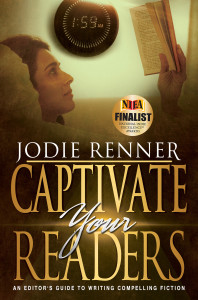 First, a quick reminder about Steven James’ one-day writers’ conference in Nashville on January 17, 2015, Troubleshooting Your Novel. I’ll be presenting a workshop on revision and self-editing, called “Revise for Success,” and I’ll also be conducting one-on-one manuscript evaluations. ~ Jodie Renner
First, a quick reminder about Steven James’ one-day writers’ conference in Nashville on January 17, 2015, Troubleshooting Your Novel. I’ll be presenting a workshop on revision and self-editing, called “Revise for Success,” and I’ll also be conducting one-on-one manuscript evaluations. ~ Jodie Renner
——————
Inspired by Kathryn Lilley’s question here Friday, I decided that rather than post one of my craft-of-writing articles so close to Christmas and the Holiday Season, I’d just share some excellent inspirational and practical advice for fiction writers, most from well-known authors. Which ones resonate most with you? Do you have any good ones to add?
I try to leave out the parts that people skip. ~ Elmore Leonard
When something can be read without effort, great effort has gone into its writing. ~ Enrique Jardiel Poncela
I’m not a very good writer, but I’m an excellent rewriter. ~ James Michener
The beautiful part of writing is that you don’t have to get it right the first time, unlike, say, a brain surgeon. ~ Michael Crichton
The wastebasket is a writer’s best friend. ~ Isaac Bashevis Singer
Don’t tell me the moon is shining; show me the glint of light on broken glass. ~ Anton Chekhov
Making people believe the unbelievable is no trick; it’s work. … Belief and reader absorption come in the details: An overturned tricycle in the gutter of an abandoned neighborhood can stand for everything. ~ Stephen King
If it sounds like writing, I rewrite it. Or, if proper usage gets in the way, it may have to go. I can’t allow what we learned in English composition to disrupt the sound and rhythm of the narrative.
~ Elmore Leonard
Writing is turning one’s worst moments into money. ~ J.P. Donleavy
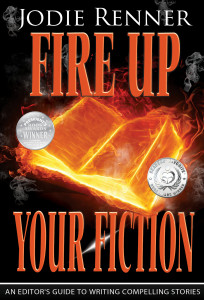 Every writer I know has trouble writing. ~ Joseph Heller
Every writer I know has trouble writing. ~ Joseph Heller
Writing is Rewriting. ~ ???
Easy reading is damn hard writing. ~ Nathaniel Hawthorne
A professional writer is an amateur who didn’t quit. ~ Richard Bach
You might not write well every day, but you can always edit a bad page. You can’t edit a blank page. ~ Jodie Picoult
Amateurs fall in love with every word they write. ~ William Bernhardt
Keep working. Don’t wait for inspiration. Work inspires inspiration. Keep working. ~ Michael Crichton
I love writing. I love the swirl and swing of words as they tangle with human emotions. ~ James Michener
I always do the first line well, but I have trouble doing the others. ~ Moliere
You can’t wait for inspiration. You have to go after it with a club. ~ Jack London
When asked, “How do you write?” I invariably answer, “One word at a time.” ~ Stephen King
Manuscript: something submitted in haste and returned at leisure. ~ Oliver Herford
I write fiction because it’s a way of making statements I can disown. ~ Tom Stoppard
Good writing is supposed to evoke sensation in the reader—not the fact that it is raining, but the feeling of being rained upon. ~ E.L. Doctorow
Writing is easy: All you do is sit staring at a blank sheet of paper until drops of blood form on your forehead. ~ Gene Fowler
Writing comes more easily if you have something to say. ~ Sholem Asch
You write to communicate to the hearts and minds of others what’s burning inside you. And we edit to let the fire show through the smoke. ~ Arthur Polotnik
If you want to be a writer, you must do two things above all others: read a lot and write a lot. ~ Stephen King
A good style should show no signs of effort. What is written should seem a happy accident. ~ W. Somerset Maugham, Summing Up, 1938
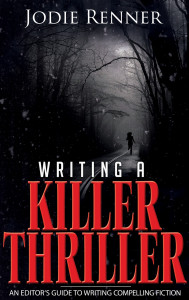 There is no way of writing well and also of writing easily. ~ Anthony Trollope
There is no way of writing well and also of writing easily. ~ Anthony Trollope
If I’m trying to sleep, the ideas won’t stop. If I’m trying to write, there appears a barren nothingness. ~ Carrie Latet
How vain it is to sit down to write when you have not stood up to live. ~ Henry David Thoreau, Journal, 19 August 1851
Write your first draft with your heart. Rewrite with your head. ~ From the movie Finding Forrester
An author in his book must be like God in the universe, present everywhere and visible nowhere. ~ Gustave Flaubert
The scariest moment is always just before you start. ~ Stephen King (On Writing)
No author dislikes to be edited as much as he dislikes not to be published. ~ Russell Lynes
Sleep on your writing; take a walk over it; scrutinize it of a morning; review it of an afternoon; digest it after a meal; let it sleep in your drawer a twelvemonth; never venture a whisper about it to your friend, if he be an author especially. ~ A. Bronson Alcott
Sit down, and put down everything that comes into your head and then you’re a writer. But an author is one who can judge his own stuff’s worth, without pity, and destroy most of it. ~ Colette
A good novel tells us the truth about its hero; but a bad novel tells us the truth about its author. ~ G.K. Chesterton
Description begins in the writer’s imagination, but should finish in the reader’s. ~ Stephen King (On Writing)
The most essential gift for a good writer is a built-in, shockproof shit detector. This is the writer’s radar and all great writers have had it. ~ Ernest Hemingway
The best style is the style you don’t notice. ~ Somerset Maugham
The road to hell is paved with adverbs. ~ Stephen King, On Writing
Drama, instead of telling us the whole of a man’s life, must place him in such a situation, tie such a knot, that when it is untied, the whole man is visible. ~ Leo Tolstoy
Quantity produces quality. If you only write a few things, you’re doomed. ~ Ray Bradbury
– – – – – – – – – – – – – – – –
Books by Jodie Renner:
~ Fire up Your Fiction – An Editor’s Guide to Writing Compelling Stories Amazon.com Amazon.ca Amazon.co.uk
~ Captivate Your Readers – An Editor’s Guide to Writing Compelling Fiction Amazon.com Amazon.ca Amazon.co.uk
~ Writing a Killer Thriller – An Editor’s Guide to Writing Compelling Fiction Amazon.com Amazon.ca Amazon.co.uk
~ Quick Clicks: Word Usage – Precise Word Choices at Your Fingertips Amazon.com , Amazon.ca , Amazon.co.uk
~ Quick Clicks: Spelling List – Commonly Misspelled Words at Your Fingertips Amazon.com , Amazon.ca , Amazon.co.uk
Getting Started With Scrivener
James Scott Bell
@jamesscottbell
The End?
All in all, it was a pretty disturbing year that furnished plenty of story ideas for thriller writers but didn’t offer many happy endings. Russia restarted the Cold War. A murderous militia took over half of Iraq, then started beheading Americans and Britons. An equally scary band of terrorists in Nigeria kidnapped hundreds of schoolgirls, most of whom are still missing. Elsewhere in Africa, the Ebola virus killed seven thousand people.
A Malaysia Airlines jet vanished over the Indian Ocean, and no one knows why. The murky circumstances are unlikely to be cleared up anytime soon, because the plane’s remains are lost amid the seabed. Unbelievably, a second jet from the same airline was shot down over Ukraine just four months later, killing almost 300 people. They’re victims of the war Russia instigated, most likely murdered by a surface-to-air missile smuggled to the Ukrainian separatists.
There were lots of disturbing incidents right here in the U.S. too. The police killed an unarmed black man in Staten Island for the crime of selling loose cigarettes. An emotionally unstable Cleveland cop shot a 12-year-old boy wielding a pellet gun. That victim was also black. Just a few days ago, after the Staten Island grand jury declined to indict the police officer who put Eric Garner in a chokehold, I heard a crowd marching past our apartment building. I ran downstairs with my daughter and we joined the procession (see photo above). My daughter was amazed when the protesters started chanting, “Black lives matter.” She couldn’t believe that this needed to be said. That we have to be reminded of one another’s humanity.
But here’s the most frightening quote of the year, from a recent story in the New York Times about the efforts to slow global warming: “Even with a deal to stop the current rate of greenhouse gas emissions, scientists warn, the world will become increasingly unpleasant. Without a deal, they say, the world could eventually become uninhabitable for humans.”
Yikes. We’re in deep trouble. And what am I doing about it? I’m writing fanciful tales of imagined apocalypses, stories aimed at entertaining readers for a few hours and distracting them from the real apocalypse that’s bearing down on us all.
Okay, okay. Let me try to think of something positive. The U.S. struck a deal with China to curb carbon emissions. The experts say it’s too little, too late, but it’s a start. Now we just have to get India and Brazil on board. And about two hundred other assorted countries.
Oh, who am I kidding? The future looks bleak.
I’ve flown over North Dakota at night. You can see the boundaries of the national parks from 30,000 feet, because they’re the only places where the gas fires aren’t burning.
But there’s always hope, right? This is the season of hope, so I should say something hopeful. I sincerely hope that our species finds the collective wisdom and will to avert this impending extinction event. And what gives me the most hope is humanity’s resourcefulness. Consider this: we just landed a spacecraft on a freakin’ comet! Compared with that feat, switching from fossil fuels to sustainable energy should be a cinch.
People become especially resourceful when they realize they’re in danger. That’s one of the reasons why I read and write thrillers: I like to see people rise above their limitations and overcome fearsome challenges. And we need to do the same thing in real life. We need to wake up and see the danger.
WAKE UP, PEOPLE!


